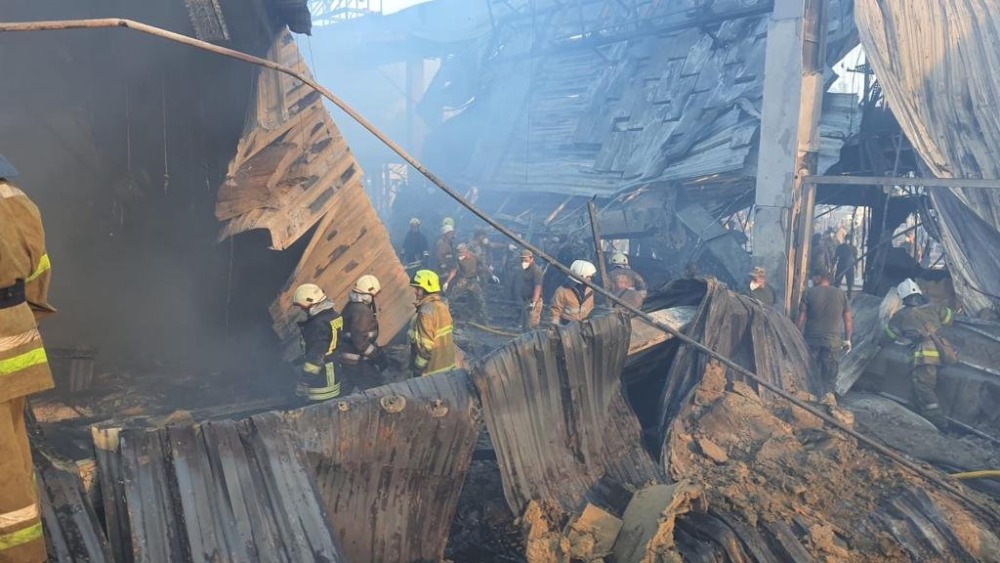How Russians reacted to the death of Daria Dugina

Daria Dugina, the daughter of ultranationalist Russian political thinker Aleksandr Dugin, was killed in a car bombing near Moscow on Saturday, August 20. Theories about who was responsible for Dugina’s death spread rapidly, with Russian state-controlled media pointing the finger at Ukraine and others blaming Russian secret services, anti-Putin partisans, and even the UK. We found that while a plurality of Russians believe that the Ukrainian secret services were behind the plot, Kremlin propaganda has only been partially successful. A large proportion of Russians are still unsure what to think about the event, which likely reflects a general lack of awareness and/or interest about Dugin and his politics.
What do we know about Daria Dugina’s death?
The night of Dugina’s death, she had attended a festival where her father gave a lecture. Although the pair was reportedly supposed to leave the event together, they ended up taking separate cars. It is unclear whether Aleksandr or Daria was the intended target of the bombing.
Dugin is often described as “Putin’s brain” or “Putin’s Rasputin.” Some analysts claim that the relationship between the two men is exaggerated. While Dugin has long espoused an imperialist worldview and advocated for Russia to invade Ukraine, he has never held an official position in the Russian government.
Competing theories about who is to blame
Many questions about Daria Dugina’s death remain unanswered. We still don’t know who organized the killing or planted the bomb–and why. But theories began to circulate soon after Dugina’s death was announced.
Russia was quick to blame the Ukrainian secret services. According to the Russian Federal Security Service’s (FSB) implausible account, a Ukrainian woman, who had recently arrived in Russia with her young daughter, monitored Dugina from a Mini Cooper before planting the explosives and then fleeing to Estonia. More recently, media personalities on Russian state television have suggested that the United Kingdom may have had a hand in the plot.
There has also been speculation, including by Estonian officials, that the operation to kill Dugina was a “false flag” operation orchestrated by Russian secret services to blame Ukraine and potentially drag Estonia into the war.
Another version of events came from former Russian opposition politician Ilya Ponomarev, who claimed that the bombing was organized by an underground group called the “National Republican Army” (NRA). Ponomarev alleged that the organization was working to overthrow the Putin regime.
Whom do Russians blame for Dugina’s death?
Although the truth has yet to be uncovered, we wanted to know what ordinary Russians thought about these competing theories. Beginning August 22, two days after Daria Dugina’s death, we asked a nationally representative sample of the Russian population who they thought was responsible for the car bombing that killed her.
On average, 38.5% of Russians think that the Ukrainian secret services are to blame. While this represents a plurality of those surveyed, it suggests that the Kremlin narrative has failed to fully cement itself within the Russian population. 6.2% of Russians blame the Russian secret services for the bombing, 8.7% think that the West was behind it, and around 1% identified the NRA or “other” as the culprit. 14.3% of our respondents had not even heard about Dugina’s death. Perhaps most significantly, 30.1% of Russians did not name a responsible party.
Unsurprisingly, as days passed and Russian media continued to report about the investigation surrounding Dugina’s death, the proportion of Russians who had not heard about it declined. But the proportion of people who were not sure what to think continued to increase. On no day did the share of our respondents who blamed the Ukrainian secret services exceed 46%.

Why are so many Russians unsure of what happened?
The fact that such a large fraction of Russians are unsure who is responsible for Daria Dugina’s death is striking, given how consistently mainstream media has reported on the event. This uncertainty may reflect a general lack of knowledge about Daria’s father, Aleksandr Dugin, and his politics.
We asked our respondents whether they approve of Dugin’s activities, alongside a list of other Russian political and cultural figures. 16.5% reported that they disapprove of Dugin, 33.0% said they approve of him, and 50.5% said they did not know or preferred not to answer the question. We found that this latter group was statistically significantly more likely to report that they didn’t know who had killed Daria Dugina. In fact, nearly half of those who didn’t know how to evaluate Aleksandr Dugin were similarly unsure about who was responsible for his daughter’s death; another 30% blamed Ukraine.
These results suggest that Russian propaganda is less effective at swaying opinions where an event is not politically or culturally salient to begin with. People who don’t know or care much about Aleksandr Dugin and his imperialist worldview are less likely to be interested in what happened to his daughter Daria. But there are still many people who, even in the absence of knowledge or interest in Dugin, were quick to accept the Kremlin’s version of events. Going forward, it will be important to study how political knowledge and interest conditions the effectiveness of Kremlin propaganda messaging.




